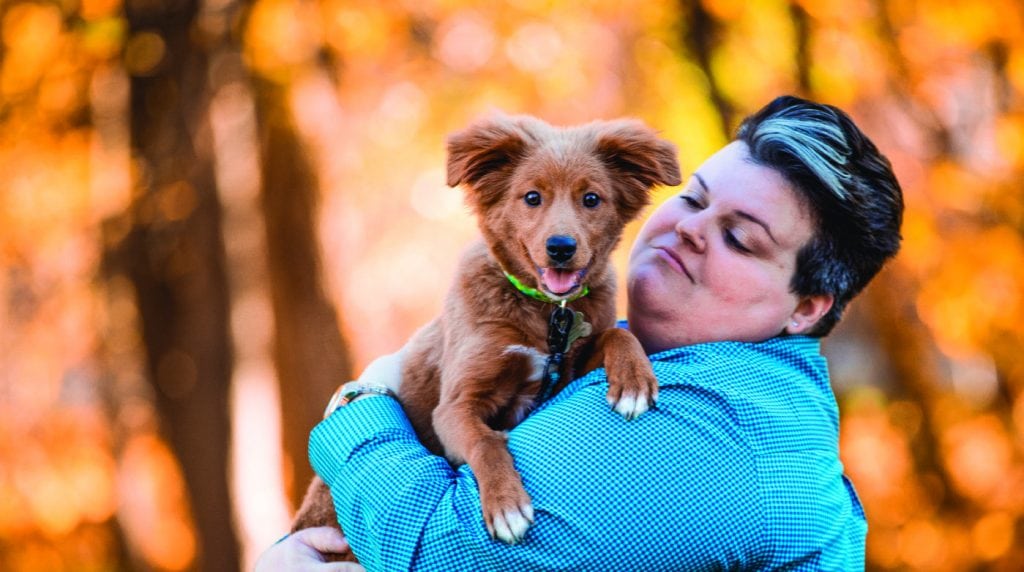Your pets can help you stay well, but can they also make you sick?
Studies show that many people experience positive health benefits like lower blood pressure and less stress when they welcome pets into their homes and lives. In some cases, however, dogs, cats and other pets may also cause health problems, either by aggravating existing conditions or transmitting parasites or infections.
Diseases that move from animals to humans are called zoonotic diseases and can be transmitted directly from a pet or indirectly through the environment. Most, including ringworm and the common cold, are treatable, but some, like rabies, can be serious or even deadly.
“There is always some risk of injury or zoonotic disease transmission in certain circumstances,” says Dr. Meagan Mueller, a researcher in human-animal interaction at Tufts University’s Cummings School of Medicine who recommends consulting with your pet’s veterinarian on a case-by-case basis to better understand any risks and how to manage them.
Fortunately, most problems can be prevented by keeping both yourself and your pets healthy and up-to-date with vaccines. Awareness, common sense and good hygiene are also crucial. People with compromised immune systems and pregnant women or women hoping to become pregnant may require extra precautions and should consult their physicians for advice.
Let sleeping dogs (and cats) lie?
More than half of the participants in a recent Mayo Clinic survey responded that their pets slept in the bed or bedroom with them. Many people who turn in with their cats or dogs find it to be a positive, beneficial experience, with the presence of their companion animals creating a sense of security.
In some circumstances, however, co-sleeping may not be the healthiest choice. For example, people with allergies or asthma may find those conditions exacerbated by sharing a bed with their pets. Those with insomnia or other sleep disorders might also want to make the bedroom a “humans only” zone to avoid nighttime disruptions.
Children under 5 years of age should never co-sleep with their pets, according to the Centers for Disease Control (CDC), or indeed be left unsupervised with them at all.
The littlest pet-lovers
As most parents can confirm, children under 5 are far more likely than adults to touch (or chew on or eat) objects or surfaces that might be dirty or contaminated and far less likely to wash their hands, making it no surprise that they are the group most likely to get a zoonotic disease. To best protect infants and young children, the CDC offers these guidelines:
Do not allow them to put their hands or other objects in their mouths after handling animals or to kiss animals.
Make sure their hands are thoroughly washed with soap under running water after contact with pets.
Adults should wash their hands before preparing formula or breastfeeding.
The CDC also recommends that those less than 5 years old should not have these animals as pets and, in fact, should avoid contact altogether with them:
Reptiles, including snakes, lizards and turtles. Amphibians like frogs, toads, newts and salamanders. Baby chicks and ducklings.
All of these are particularly likely to carry salmonella bacteria, which can cause severe intestinal problems that can be particularly dangerous for younger children. Older children and adults should also exercise thorough hygiene after handling these animals.
Discuss your home situation with your veterinarian. Tell him or her about other people in the house. Veterinarians are educated about all the zoonotic disease and how to prevent them in each situation.



